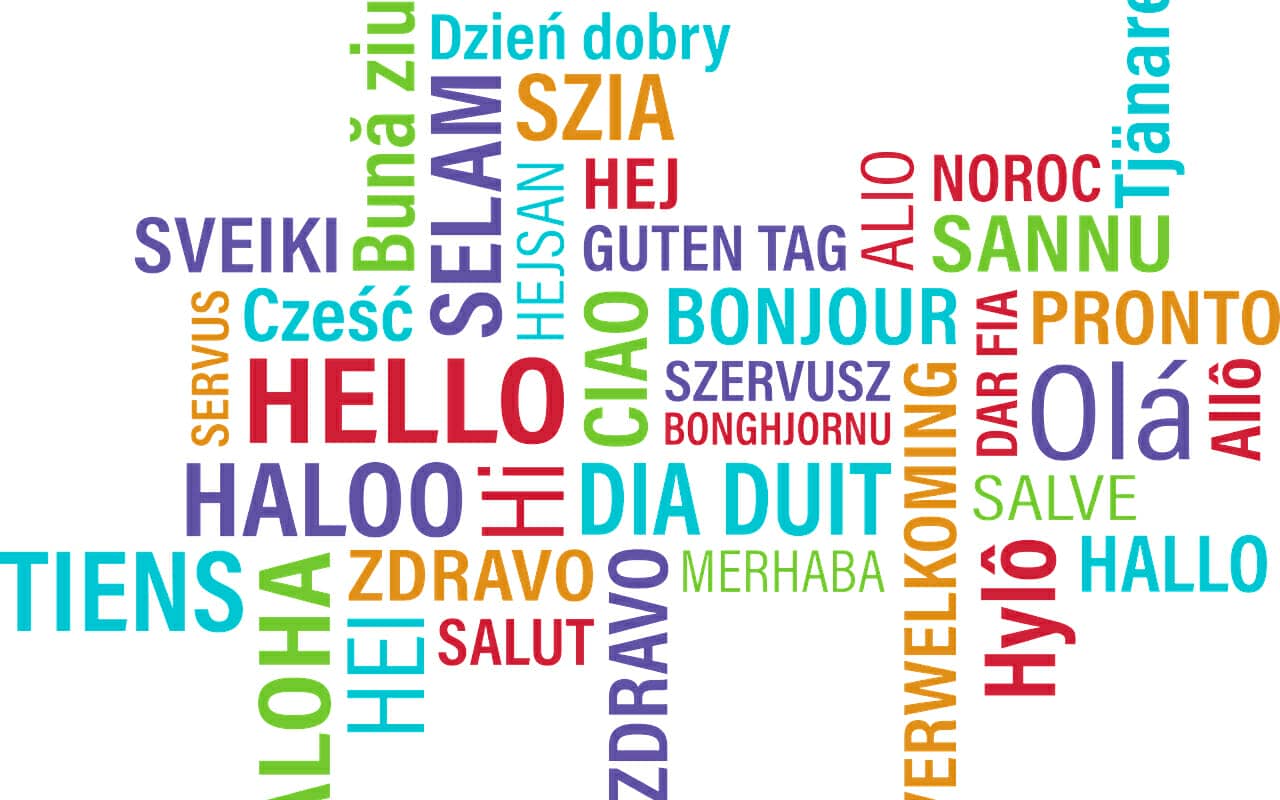Podcast: Download
Subscribe: Apple Podcasts | RSS
 Some people claim that the number of languages you can learn at the same time is unlimited.
Some people claim that the number of languages you can learn at the same time is unlimited.
Of course they do. They own a language learning software company!
But the fact of the matter is you can’t learn an unlimited number of languages at the same time.
Think about it:
There are only 24 hours in a day. A huge chunk of them are devoted to sleeping, eating, working and other forms of self care.
Worse, a lot of articles claim that it all depends on your motivation.
This is problematic because top performers simply do not rely on motivation.
You might find this surprising, but motivation rarely works. Certainly not on its own. Other strategies are needed in order for even the best performers to take consistent action.
So let’s bring this discussion back down to earth and bring clarity to this question.
The answer will not only help you, but it’s incredibly interesting too!
How Many Languages Can You Learn at Once (Realistically)?
The truth is that most people can barely find time, focus and energy to learn one language at a time.
And there’s no shame in this. None whatsoever.
When I was in grad school and needed to learn Biblical Hebrew as part of my Phd, that was the only language I studied. Period.
Later, when I was in Germany, I focused solely on acquiring German.
The only times I’ve studied more than one language at the same time were after I knew how to learn languages in the first place.
Only then did I focus strategically on learning more than one language at the same time.
Why Children Can Learn Multiple Languages on Autopilot
Now, you may have heard that children can learn multiple languages with ease.
This is true to a certain extent. For one thing, kids are very good at learning out of context. In other words, they’re not looking for the meaning in everything. They’re just observing and absorbing without the contextual judgments adults have been trained to make.
And here’s the problem with that: As mature individuals, we often have misconceptions about our adult learning styles and even how to create or optimize a proper learning cycle.
So if one thing is true, it’s that children tend to enjoy high levels of access to what some scientists call “socially contingent partners.” These are people willing to not only correct children as they learn languages, but to do so with reasonable accuracy.
In other words, this means that children can only pick up languages relative to their access to socially contingent partners.
In Germany, some kindergartens will speak up to three languages at once. Many experts think three languages at once is the sweet spot in order to provide enough access to socially contingent partners. But three languages offered in one kindergarten was still relatively rare as of 2014.
Language Learners Should Not Compare Themselves To Children
Although it’s tempting to think that children are exceptionally good at learning languages, this isn’t really true. Yes, they’re good at picking things up without them needing to be contextually related.
But think about it:
A shockingly high level of kids cannot write grammatically correct sentences even after graduating from high school. And in order to pick up another language, studies have shown that they would need lots of writing practice in each language under instruction in order to develop meaningful fluency in the language.
This means that kids are just as time-strapped as adults. All the more reason to teach the young learners in your family all about mnemonics.
How Many Languages Should You Learn at Once in Light of This?
But the reality is that most of us will need to focus on one language at a time. Then, once we have developed the meta-skills involved in learning new languages, we will want to focus on learning 2-3 maximum at any given time.
And it can really help if you choose languages that are close, such as Spanish and French. It’s especially enjoyable to learn languages using Netflix and other streaming services when the languages share parallels.
Even better, you can use tactics like the Memory Palace technique to help, especially once you have an accurate understanding of how many words you need to learn.
There’s also the Memory Palace specifically for language learning to check out.
Is It Possible To Learn Every Language?
Theoretically, yes. Given enough time and access to socially contingent partners who can correct your mistakes
But we face limited time. And we also face the fact that many languages simply aren’t in use at all. Many others are used by such small numbers of people that accessing qualified learners will be a challenge.
Of course, limited access to teachers shouldn’t discourage you whatsoever.
For example, the Ancient Language Institute does great work in providing you with experts who can help you in a variety of languages. Likewise, there are classes available in Sanskrit, Classical Chinese and Navajo.
How Many Languages Can One Person Learn?
Here’s the great news:
Many people exist who have learned 20 or more languages.
Steve Kaufman is one example. And he’s frank about how he spent his time in order to make this happen. (Hint: It’s pretty much the same as the suggestions given above.)
Of course, he had a head start with some early bilingual experiences. He’s also been at it for over 50 years, but didn’t start on his 9th language until he was 60. It’s also important to know that he created and represents a language learning site, so it is a professional focus.
In other words, don’t pressure yourself to learn a language overnight! Kaufman didn’t and his background and interests propel him in ways that many people won’t have. Remember: Motivation is not to be relied upon – at least not entirely.
The Alternative To Motivation When Learning Multiple Languages
If motivation isn’t the key, what is?
Systems and goals.
I know that my approach to language learning without motivation is controversial. But think through the logic.
Rather than waiting to feel motivated, create a learning system that involves regular exposure to not only the languages you want to learn, but also the people who can help you.
Make lots of mistakes.
And use the Big Five of Language Learning:
- Reading
- Writing
- Listening
- Speaking
- Memorizing
My speciality is helping people memorize words and phrases.
If you’d like to learn more about how memory techniques can help, check out my FREE Memory Improvement Kit:
It’s not exactly a magic bullet, but it has always made the process much more fun and engaging for me.
Plus, it’s easy to use it systematically and learn vocabulary and phrases much faster while doing the ample amounts of reading, writing and listening needed to make progress.
So what do you say?
Are you reading to stretch how many languages you can learn at once? Rest assured that once your first language is under your belt, it gets so much easier from then on in. You just have to follow the goal-based systems many before you have used.
And that’s not rocket science, especially when you realize that adults have been providing kids with those goals and systems for a very long time.
Because adults know how to do that for themselves, with a bit of thought and consistency, learning any language much faster than the years kids put into it will be a breeze.
Related Posts
- 6 Easiest Languages for English Speakers (And How to Learn Them)
If you want to know the easiest languages for English speakers, the standard answers won't…
- 10 Best Languages to Learn in 2024(And Why)
When it comes to the best languages to learn, this is the list you need.…
- Learning Two Languages at Once: The Definitive Guide
If you're learning two languages at once, you probably want to know how to avoid…







